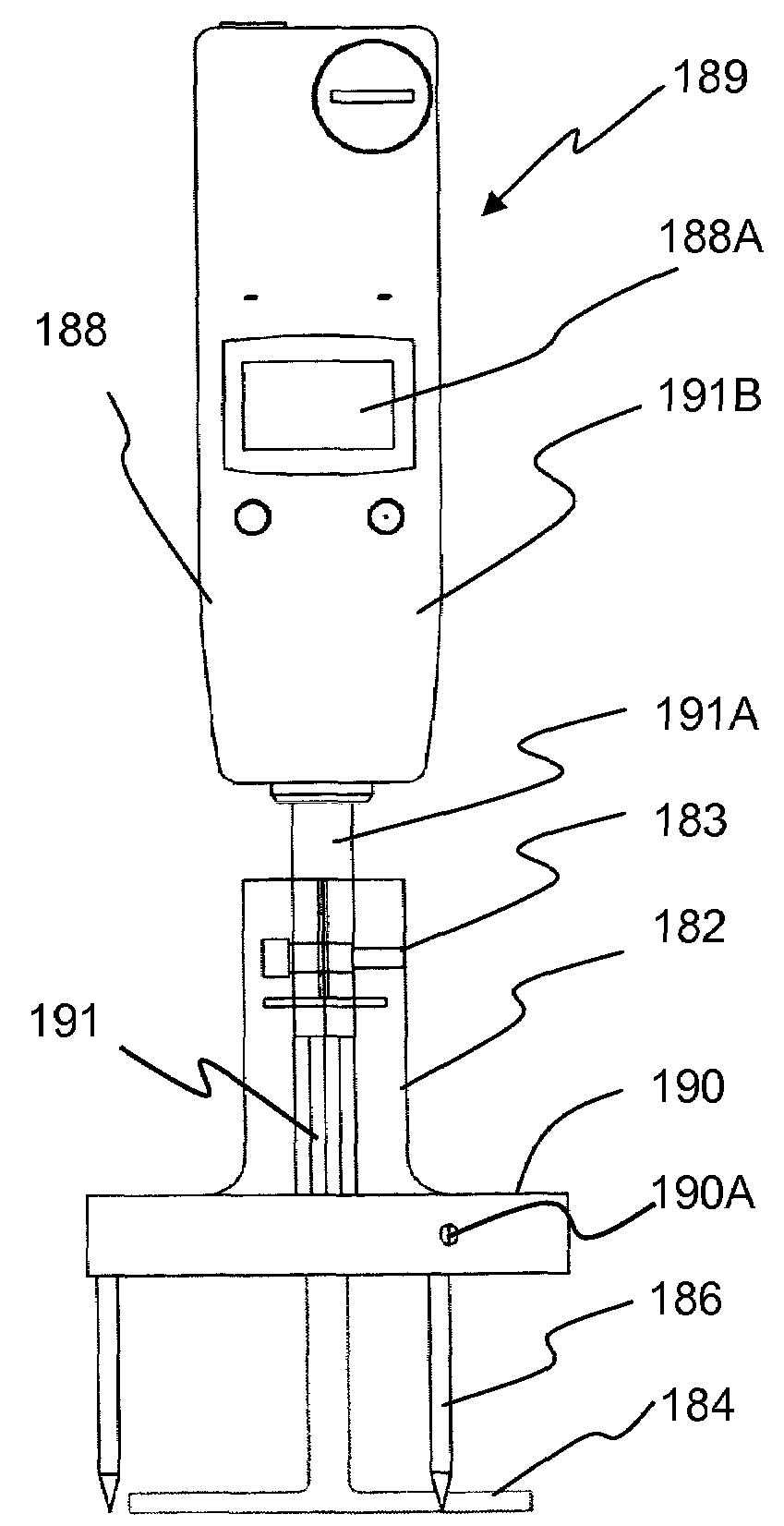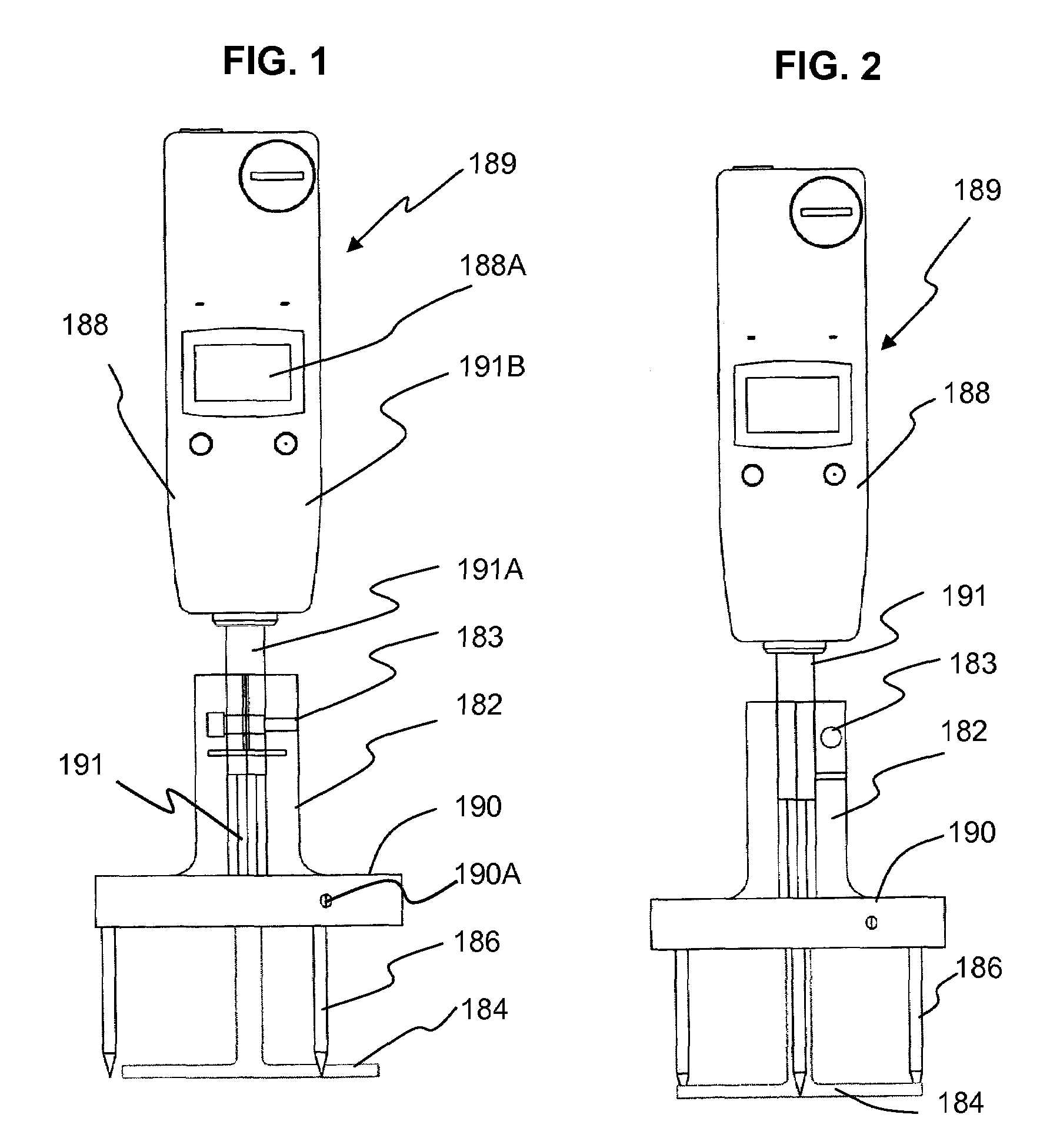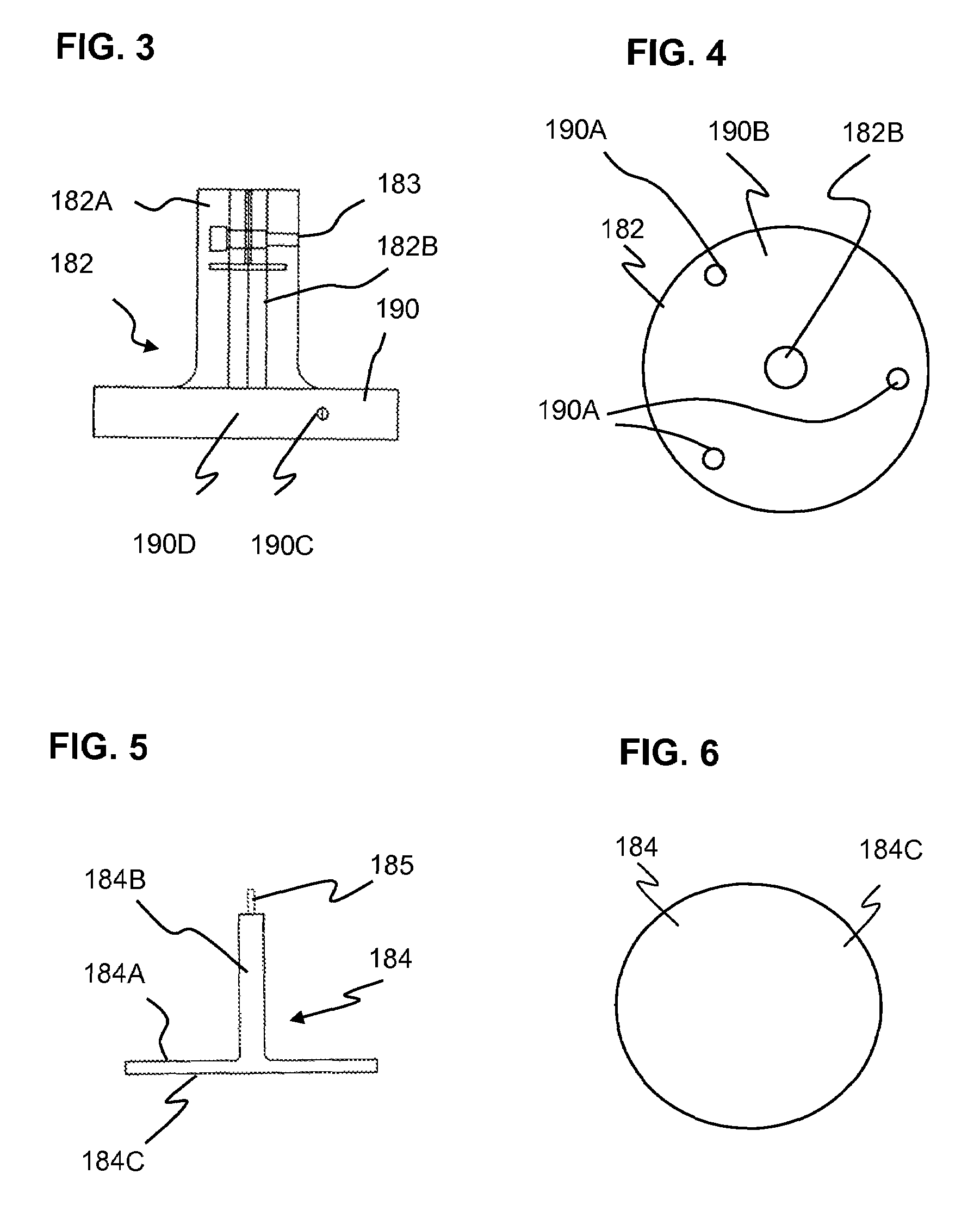Wet slurry thickness gauge and method for use of same
a technology of wet slurry and thickness gauge, which is applied in the direction of instruments, mechanical measuring arrangements, liquid/fluent solid measurement, etc., can solve the problem of insufficient structural strength
- Summary
- Abstract
- Description
- Claims
- Application Information
AI Technical Summary
Benefits of technology
Problems solved by technology
Method used
Image
Examples
second embodiment
of a Production Line
[0122]The present metering gauge may also be used with an alternate SCP panel production line or system 130 illustrated in FIG. 12 and generally designated 130 for producing high-performance, fiber reinforced SCP panels incorporating a relatively high volume of fibers per slurry layer.
[0123]In many cases, increased levels of fibers per panel are obtained using this system. While the system of FIG. 10 discloses depositing a single discrete layer of fibers into each subsequent discrete layer of slurry deposited after the initial layer, the production line 130 includes a method of building up multiple discrete reinforcing fiber layers in each discrete slurry layer to obtain the desired panel thickness. Most preferably, the disclosed system embeds at least two discrete layers of reinforcing fibers, in a single operation, into an individual discrete layer of slurry. The discrete reinforcing fibers are embedded into the discrete layer of slurry using a suitable fiber e...
PUM
| Property | Measurement | Unit |
|---|---|---|
| diameter | aaaaa | aaaaa |
| diameter | aaaaa | aaaaa |
| diameter | aaaaa | aaaaa |
Abstract
Description
Claims
Application Information
 Login to View More
Login to View More - R&D
- Intellectual Property
- Life Sciences
- Materials
- Tech Scout
- Unparalleled Data Quality
- Higher Quality Content
- 60% Fewer Hallucinations
Browse by: Latest US Patents, China's latest patents, Technical Efficacy Thesaurus, Application Domain, Technology Topic, Popular Technical Reports.
© 2025 PatSnap. All rights reserved.Legal|Privacy policy|Modern Slavery Act Transparency Statement|Sitemap|About US| Contact US: help@patsnap.com



